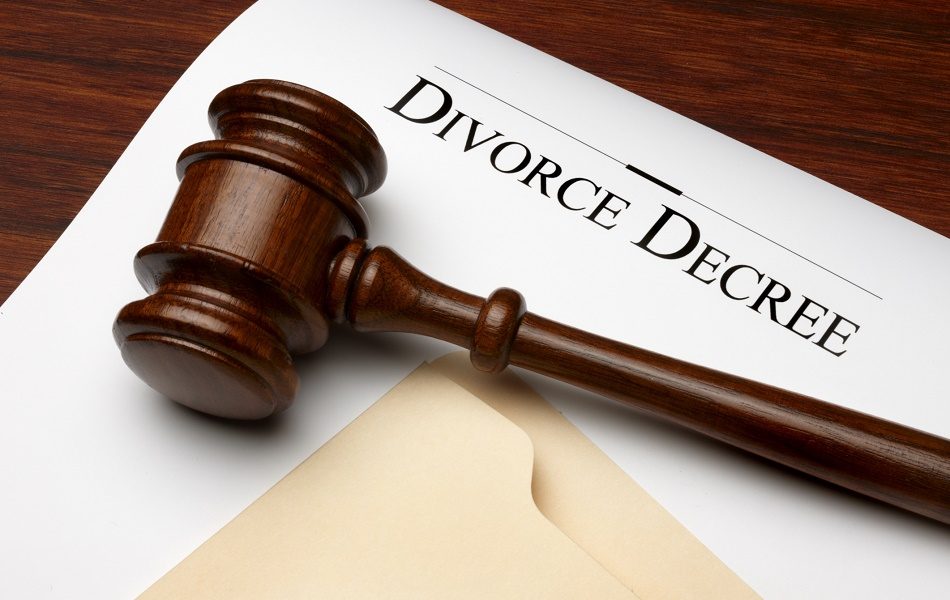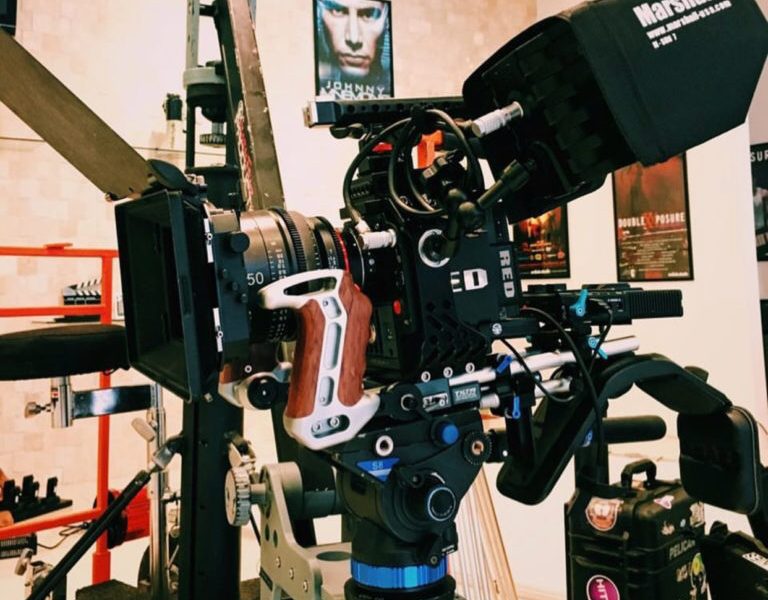Sometimes it becomes necessary for courts to oversee the distribution of your assets upon your death. That’s where probate comes in. A probate attorney can be a value source of information and help when it comes to this.
Probate is the legal process by which a person’s final debts are settled and legal title to property is formally passed from the deceased to his or her beneficiaries and heirs. There are many arguments for and against probate and its value in an estate plan.
Probate provides a court-supervised distribution of an estate’s assets. However, the process subjects an estate to public scrutiny and additional costs of probate. So before making a final decision, learn the role of probate in estate settlement to determine whether it would work in your own estate plan. A Probate lawyer or probate attorney can be very useful sometimes in assisting in this whole process.
HOW PROBATE BEGINS.
The probate process is initiated in the county of the decedent’s legal residence at death. Somebody acting on behalf of the decedent must come forward with the decedent’s original will. Usually, this person is named in the will as the executor, chosen by the decedent as the one in charge of “wrapping up” his or her affairs. If there is no will, somebody must ask the court to be appointed as administrator to perform the same function. Most often, this is the surviving spouse or an adult child. If there is a dispute over who should serve as administrator, the court will appoint a neutral public administrator who can be counted on to be fair. This person is paid an hourly fee from estate funds.
The executor and administrator have practically identical legal rights and responsibilities, and both may be referred to as the decedent’s personal representative. Note that the personal representative’s authority only extends to the probate estate defined as property subject to the jurisdiction of the probate court. Assets disposed of outside the probate process are part of the “non-probate estate,” and the executor or administrator has no control over these. If a decedent has probate property outside the court’s jurisdiction, then that property must be subjected to ancillary probate in the other jurisdiction.
The executor-to-be should file (with or without the help of a lawyer) a Petition for Probate of Will and Appointment of Executor. This is done at the probate court clerk’s office. Probate court is a division of the state court system, but it might be referred to by another name. (A certified copy of the death certificate must also be shown to the court. One will need a death certificate for other purposes, so it is a good idea to order about 10 copies initially. The coroner or mortuary can assist with this.)
A date is usually set for the person named as executor (or administrator) to appear before a judge, present the will, if any, and ask to be formally appointed. After a will’s genuineness and validity are established—by simple inspection of the document—the court issues an order “admitting the will to probate,” which the county clerk then records. In some states, expedited procedures may be available.
Once probated, a will is a public record, and so are the subsequent filings with the court. These papers are open to inspection by anyone. The laws in many states require public notice of the probate proceeding by the publication of newspaper ads.
The probate judge officially appoints the executor (or administrator). This appointment confers on the personal representative full authority to deal with the decedent’s probate property and accounts. The personal representative is given a certified court document that must be honored by financial institutions and others. In some places, this is called the “letters of administration” or “letters testamentary.”
THE THREE BASIC STEPS OF PROBATE.
The steps of probate are tasks that have to be completed on behalf of any person who dies, whether he or she has a will, trust, or neither. These chores can be easy or very difficult, depending on the nature of the decedent’s property and the reasonableness of the people involved. But much of this business really cannot be avoided, even if probate itself is avoided.
Most states have streamlined probate procedures for handling the settlement of small estates and uncomplicated larger ones. In a few states, the procedure for small estates may not even require a trip to probate court. But even where court is necessary, if nobody is protesting or fighting over anything, the process need not be as bad as many people fear.
If the decedent left a will, there should be an executor named in it to manage the estate and wrap up the decedent’s affairs. If there is no will, the court will appoint an administrator to fill this role. The generic term “personal representative” is often used to refer to an administrator or executor. With or without a will, the probate process can be divided into three steps:
Step 1. Collection, inventory, and appraisal of all assets that are subject to probate
One of the executor’s or administrator’s first and most important duties after appointment is to take an inventory of estate assets. These assets include money that is owed to the decedent or the estate, e.g., loans, final paycheck, life insurance, or retirement account(s) made payable to the estate. This inventory must be filed with the court. A probate lawyer can assist with this.
If the decedent’s property consists entirely of bank and stock brokerage accounts, for example, the account numbers and latest balances will be listed. Valuing real estate or an antique car collection, by contrast, would probably require a professional appraisal. The detail and accuracy necessary is dictated by the circumstances and degree of scrutiny being shown by other interested parties.
An estate checking account is usually a good practical idea for paying the decedent’s household final bills and estate expenses (e.g., attorney, appraiser). This checking account is useful for combining all the decedent’s financial accounts into a single pot. Thought should be given, however, before stocks or bonds are sold. It may be unwise, for example, to convert a good investment into cash in a checking account merely for convenience’s sake. The passing of a loved one is a very trying, emotional experience, a probate lawyer or probate attorney help and assist with this whole process.
Step 2. Paying the bills, taxes, estate expenses, and creditors of the decedent
The personal representative is never personally responsible for paying these expenses out-of-pocket if estate funds are not available. The surviving spouse and children are generally given an allowance under the law, which varies greatly from state to state, whether or not there is a will. Generally, an allowance comes “off the top” and is set aside first. Thereafter, the order of payment of claims against the estate is usually:
- Costs/expenses of administration
- Funeral expenses
- Debts and taxes
- All other claims
The personal representative reviews the decedent’s final bills, debts, and any claims against him or her as well as the supporting proof. The personal representative then pays or settles those that are valid and rejects the rest. He or she may hire an attorney, with estate funds, for advice or to defend or negotiate any legal claims. (An example of such a claim may be a motorist demanding compensation for injuries suffered in a car accident caused by the decedent a few months previously.)
There are procedures under state law dictating what a rejected claimant or creditor can and must do next to keep the claim alive. This may even involve filing a lawsuit against the estate. Anyone who feels that the estate owes him or her money is likely to have only a limited time to begin further action. After that period expires, the claim may be barred forever. The certainty of that cut-off is an often-overlooked argument in favor of going through probate. Some states allow creditors to wait until after probate proceedings to approach (or sue) those to whom the estate has been distributed. If they have been given notice, however, most creditors will not wait until later, even if it is allowed.
Step 3. Formal transfer of estate property according to the will or by the state laws of intestacy succession (if there is no will)
When all rightful claims, debts, and expenses have been paid, the remainder of the property is distributed by the executor as the will directs. (At this point, if there is no will, the administrator distributes property according to state law.) The executor generally has the discretion to distribute the estate in cash or in kind (i.e., give away the property itself), but the will can specify otherwise.
The executor may sell or transfer real estate if the will permits it (most do), but only after a legally specified waiting period. The executor usually may sell or transfer the testator’s (decedent’s) personal property any time but may not begin final distribution of property or sale proceeds until after a waiting period provided by state law (e.g., six months).
When the waiting periods have expired and all legitimate bills, debts, and taxes have been paid, what remains of the estate is available for distribution to heirs or beneficiaries. Only then may the executor make disbursements of cash, send copies of documents such as deeds and investment statements showing new ownership, or transfer physical property to the respective beneficiaries.
The waiting period before property may be distributed, even were it not required by law, is a very practical idea. The personal representative cannot immediately rule out the existence of a forgotten lawful obligation the decedent might have left behind. In fairness, the law requires that all creditors of the decedent have notice and a chance to present their claims. That is also why the executor or administrator publishes a legal notice in the newspaper that the estate is in probate.
A final settlement or accounting is generally required of all the personal representative’s dealings on behalf of the estate. Any party who intends to object to any aspect of the probate proceeding should come forward and be heard at this point if not sooner. Once the judge approves the final settlement, the personal representative usually has no further duties, and the estate no longer exists.
Wills and other legal documents often refer to “real” and “personal” property. Real property refers to buildings and land; most people are familiar with that term. But many are unaware that personal property is a specific legal term referring to anything that is not real estate (e.g., cash, a computer, shares of stock, an individual retirement account).
The probate process is often portrayed as a nightmarish ordeal. If there is no conflict or controversy, however, much of it is simply wrapping up the decedent’s affairs and performing tasks that must be done even when probate is avoided.
THE DUTIES OF PERSONAL REPRESENTATIVES, EXECUTORS, AND ADMINISTRATORS.
Most wills give the executor very wide discretion in handling property and the affairs of the estate, and the law permits this. But the intention of the testator as expressed in the will should always be considered, as well as the desires of the estate beneficiaries when practical. For the sake of family harmony, it is ideal to choose an executor who is both fair and respected by all parties concerned. (When there is no will, the court chooses an administrator to fulfill the same kind of duties an executor would have.)
The executor should generally not act until the will is probated, because he or she has not been officially given authority until then. The executor should, however, pay for the funeral and take care of estate property before appointment if necessary (e.g., maintain real estate or continue to operate a business). The executor may hire, with estate funds, laborers, lawyers, accountants, and other professionals for assistance.
It is a good idea for the personal representative to demonstrate openness by sending notice of what is going on to all heirs and beneficiaries. This may even be required by state law. An heir is any of a decedent’s relatives who would be in line under state law to take a part of the decedent’s estate if the decedent died without a will, e.g., a child. A beneficiary is a person, related or not, whom the decedent has specifically named in a will, insurance policy, etc., to be a taker of his or her property. Often, of course, a decedent has specifically named his heirs as the beneficiaries under his will, policy, or retirement accounts.
The personal representative’s notice should state what action is about to be taken (e.g., when an auction is planned), indicate the court where estate papers are on file, and be accompanied by a copy of the will, if any. This small courtesy can prevent suspicion and bickering and is good legal strategy, too. If a party who has received this notice has an objection but fails to come forward, the party may find it very difficult to be heard by a judge later. For this reason, a personal representative should also give individual written notice to known creditors of the decedent even though a notice is published in the newspaper.
If the personal representative is also a beneficiary under the will, or an heir according to law if there is no will (e.g., an adult child), he or she is absolutely forbidden to “self-deal” or give anyone preferential treatment. This is a frequent issue. Unfortunately, however, the executor is in such a privileged position that it is difficult for the law to provide a quick-enough remedy when this rule is violated. That is why it is so important to avoid this problem to begin with by writing a will and choosing an executor wisely, rather than allowing the court to appoint an administrator who may not be the best person for the job. This is an argument for the use of an institutional executor such as a bank.
Note that, absent his or her own negligence or wrongdoing, the individual serving as executor or administrator is never personally responsible for satisfying claims or lawsuits against the decedent or the estate itself. But the personal representative does have a duty to gather whatever estate assets exist and to pay the decedent’s lawful obligations as far as possible. Meanwhile, the creditors, if any, have a prescribed period of time to come forward. So the personal representative may indeed be personally liable for the debt if he or she has given away to the heirs or beneficiaries what should have gone to a creditor.
The personal representative must also act immediately to prudently invest estate assets. The law imposes a fiduciary duty on personal representatives to act cautiously and always to have the best interests of the beneficiaries in mind. If this duty is violated and a loss or waste of assets results, the personal representative may be ordered to pay compensation personally (or as an institution) to the beneficiaries in this situation, too.
The personal representative is not held responsible for a poor return on estate investments as long as any investments chosen by him or her are appropriate. For example, if a general market downturn decreased the value of the estate portfolio of bonds and blue chip stocks, the law would not hold the personal representative responsible. By contrast, if the personal representative lost money through risky speculative investments or failed to get a reasonable return by leaving substantial assets in a checking account, these would probably be considered inappropriate, and he or she might be individually liable.
The personal representative’s fiduciary duty also requires him or her to protect and preserve estate assets. For example, if estate funds were available but the personal representative neglected to pay an insurance bill and a fire loss to the decedent’s home resulted, the personal representative might well be held liable to the beneficiaries.
A personal representative is entitled to reasonable compensation often limited to a certain percentage (e.g., 5%) of the property in the probate estate. (Extra compensation related to handling some special matter may be allowed by the court.) That does not mean the executor automatically gets that much. The fee taken is usually listed on the final report and is, therefore, subject to approval by the court. Some states have an official “reasonable” fee scale for personal representatives and probate attorneys. These may actually be higher than fees in comparable cases in states that do not have official fee scales.
An objection can be raised if the fee appears excessive, considering the time and effort actually expended. Professional fees (lawyers, accountants, appraisers) will also be allowed. These fees must be reasonable, too, but are not subject to a set limit.
The personal representative has a great responsibility. A trustworthy person or institution should be named in one’s will to avoid the family strife that often follows when this choice has to be made by the court.
SUMMARY OF OVERVIEW OF THE PROBATE PROCESS.
The probate process is not necessarily as difficult as people are led to believe. Much of the effort expended to wrap up a person’s affairs is necessary, even if probate court is avoided entirely. The process often goes smoothly, and when it does not, it is often because of difficulties—legal, financial, or personal—that are attributable to the decedent’s situation, not the court. These same issues would adversely affect the “peaceful” transition even if probate were avoided, and in some cases are better dealt with under court supervision.
Consider the pros and cons of probate as they apply to your own estate before making a decision one way or another about avoiding probate. Sometimes the best solution is to transfer some assets outside probate and others under its umbrella. If any questions arise from the sometimes complicated process, contact your local probate lawyer or probate attorney for assistance.
It’s important to remember that certain laws vary by state and some of these tips might not be applicable in your region. Be sure to find a probate attorney in your area to advise you on the entire process.
Disclaimer: While every effort has been made to ensure the accuracy of this article, it is not intended to provide legal advice as individual situations will differ and should be discussed with an expert and/or lawyer.
For all questions regarding your individual situation, call an experienced probate attorney in our directory today – Http://www.ProbateCounselors.net/






